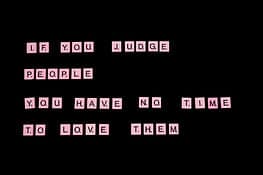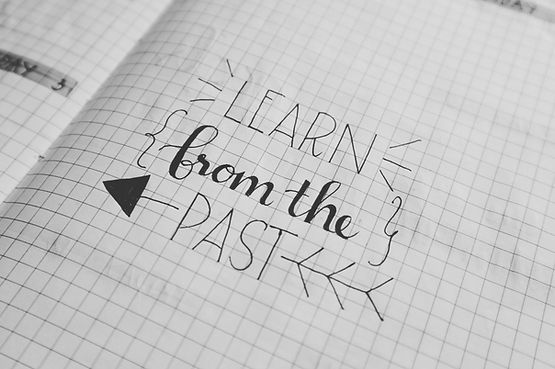Master Your Motivation: How to Optimize Your Health Goals in 6 Ways
In Part 4 of this series on mastering your motivation, we asked the question of whether your peeps are the best support for your motivation. Today we’ll examine six autonomy supportive practices that foster optimal motivation and are implementable right now! Remember, autonomy is that felt sense of choice and responsibility for the decisions you make that are based on your values and beliefs.
You’ve glimpsed what it looks like when the autonomy need is supported. Even if we are uncertain, we still feel we can continue and make progress. There is forward momentum, whether that means a different path or plan is instituted, because the actions we take are undergirded by personal values and principles that we’ve chosen to live by.
The personal part of this is extremely important. If we’re basing our decisions and actions upon the beliefs or ideas of others, our pursuits can easily (and often do) quickly crumble. Sometimes they need to, so we can understand what’s really in our best interests!

I spent many years of my life working with one group in particular– dieters. They would come to me often feeling fragile, with varied stories of failure, self-sabotage, doubt, shame, and disbelief in themselves. When I was coaching them through their goals of weight loss, my aim when they were in the throes of self-loathing and questioning of their capacities, was to help them redefine and reframe their behaviors.
Criticizing ourselves, beating ourselves up for behaviors we’re not proud of, and creating impossible conditions for success, never serves us. As you now know, it threatens our autonomy. We feel like we’re backed into a corner vs being in a space where we can access our choices and the possibilities.
Confidence is built gradually, with self-compassionate practice and observations. Ideally, when we experience something that we don’t like, that’s unpleasant, or that causes us to feel uncomfortable, we follow it up with support and encouragement, not shaming and contempt! While my work focuses primarily on supporting my clients through recovering from the harms of chronic dieting and the internalization of the beliefs of diet culture so they can reclaim the freedom of pursuing health beyond weight shame and food fear, the process by which we make changes with optimal motivation remains the same!
A few processes appear to be particularly crucial for the support of autonomy and goal persistence. We can thank my clients and others whom I have interviewed, for sharing their stories.

These six practices serve to bolster autonomy and as such, intrinsic motivation. Intrinsic motivation is the pursuit of an activity purely for the personal satisfaction it provides. The opposite is extrinsic motivation which is pursued for external rewards, compensation, or to avoid punishment. The individuals who engage in these six practices are more consistent, feel a sense of personal agency and ownership, and perceive a sense of choice as they engage in the activities related to their goals.
I believe that these practices all serve to help us define our identities. Yes, identities plural. We all have lots of identities, and when we do, it means that when things get tough, we can rely on those other parts of us to step in and help us out. I don’t just call myself an athlete, I also call myself an adventurer. I don’t just call myself a therapist, I also call myself a questioner. I don’t just call myself a wife, I call myself a lover of relationship. All the former identities could disappear, but I’d still have the latter.
Defining Your Identities
Let’s chat more about what it means to be defining your identities. Be thinking about your personal goals and how engaged you are in the practices I will share. Are there certain domains of your life where these practices are prominent? You may notice in the work domain, some or all are present, but at home, they’re absent. You may perceive certain individuals as barriers to one or more of these practices as well. You may feel compelled to exhibit one of the practices in one area but feel your ability threatened in another.
Defining Your Identities is a practice characterized by behaviors geared toward actualizing the self. Carl Rogers, humanistic psychologist, believed self-actualization was the intrinsic goal of every human. He said, ‘It is that the individual has within him or her vast resources for self-understanding, for altering his or her self-concept, attitudes and self-directed behavior – and that these resources can be tapped if only a definable climate of facilitative psychological attitudes can be provided’.

One woman I interviewed shared that she desired to feel empowered to approach health from a broader perspective beyond meal plans and macros. She believed that the constant focus on the scale number and the preoccupation with how her body appeared was limiting her ability to be in her life. It was like she was on the outside looking in, holding herself back from the experiences she desperately wanted to cultivate until she lost weight. She also recognized that she was pursuing weight loss because she felt bad about her body in comparison to others. She was pursuing weight loss in the hopes of changing the perceptions of others, and it all began to feel empty. She would tell you now that she still wants to lose weight, but she knows what that would require and what the consequences would be with that outcome at the help of her energy.
She was defining and re-defining her identities as we worked together, her reasons to pursue health differently being connected strongly to her personal constitution, honesty, and desire to be persistent, determined, and aligned with her values. She found the support within a forum that encouraged significant vulnerability as they all practiced with unlearning what they’d been indoctrinated into from such young ages. Together, they questioned the meaning of their goals and the changes they were witnessing within the various spheres of their lives as they pursued health disconnected from external measures.
Another client acknowledged how her story and sense of self had transformed with her body. She was making sense of her present in relation to her past, as she navigated the shifts in relationships with others and herself, as well as the emotion she was experiencing. She described the correlation between a decrease in weight and an increase in attention. She was also acutely aware of the correlation between increases in weight and her medical professionals commenting in concerned and negative, shaming ways.
No matter the context in which she received the attention, she felt like an object! The experiences prompted reflection and a redefining of identities. Where once she would have said to you, “I’m a person who exhibits discipline with food and takes great care to ensure I manage my weight,” now she would tell you, “I’m a person who values how I feel inside and focuses on living in a way that allows me to be active!” Like the previous client, she utilized others in a group for reassurance as she focused inwardly on the important steps of her journey. I witnessed even more defining identities practices when the support forum participants would reminisce about what their previous selves were like.

This practice has been crucial in my personal journey. I weigh more now than I did for decades, and with that weight has come significant freedom to pursue what is most important to me. The more I was complimented about my body parts, the more I focused on my body’s appearance. The more I focused on my weight and appearance, the more I worried about it, and the more I reinforced the resistance to break out of the idea that I needed to maintain this way of life to feel fulfilled, happy, and healthy! Of course, the transition and the unlearning of what it means to pursue health outside of weight and food “management” has been filled with ups and downs, but I’d never go back. My identities are varied and valuable, distinctly deep and enduring.
Check out the six practices that can support your autonomy and fan the flame of powerful motivation!
6 Autonomy-Supportive Practices
- Setting health goals based on feeling better vs looking better (i.e., agility, endurance, strength, emotional depth)
- Believing in a sense of choice and reflecting on your choices from a place of personal empowerment and abundance vs scarcity
- Improving psychological flexibility (i.e., developing self-compassion and accepting what is not in our control and what needs letting go)
- Being honest with yourself about goal related behaviors and thoughts (i.e., skillfully assessing whether the actions or mindset is aligned with personal values vs internalized from the culture and dysfunctional long-term)
- Setting goals outside of the expectations of others
- Setting goals based on personal strengths currently and the capacities and tendencies (internal shifts) you want to build for your future self
Take the time this week to reflect upon and structure deliberate practices like these that can set you up for more enduring motivation. Which could use some conscious personal effort? Where are you pedestaling external outcomes above what resonates most powerfully for you on the inside? Notice the general feeling you have when you pursue your goals– do you feel open and expansive most of the time or do you feel tight, confined, and restricted?estricted?






